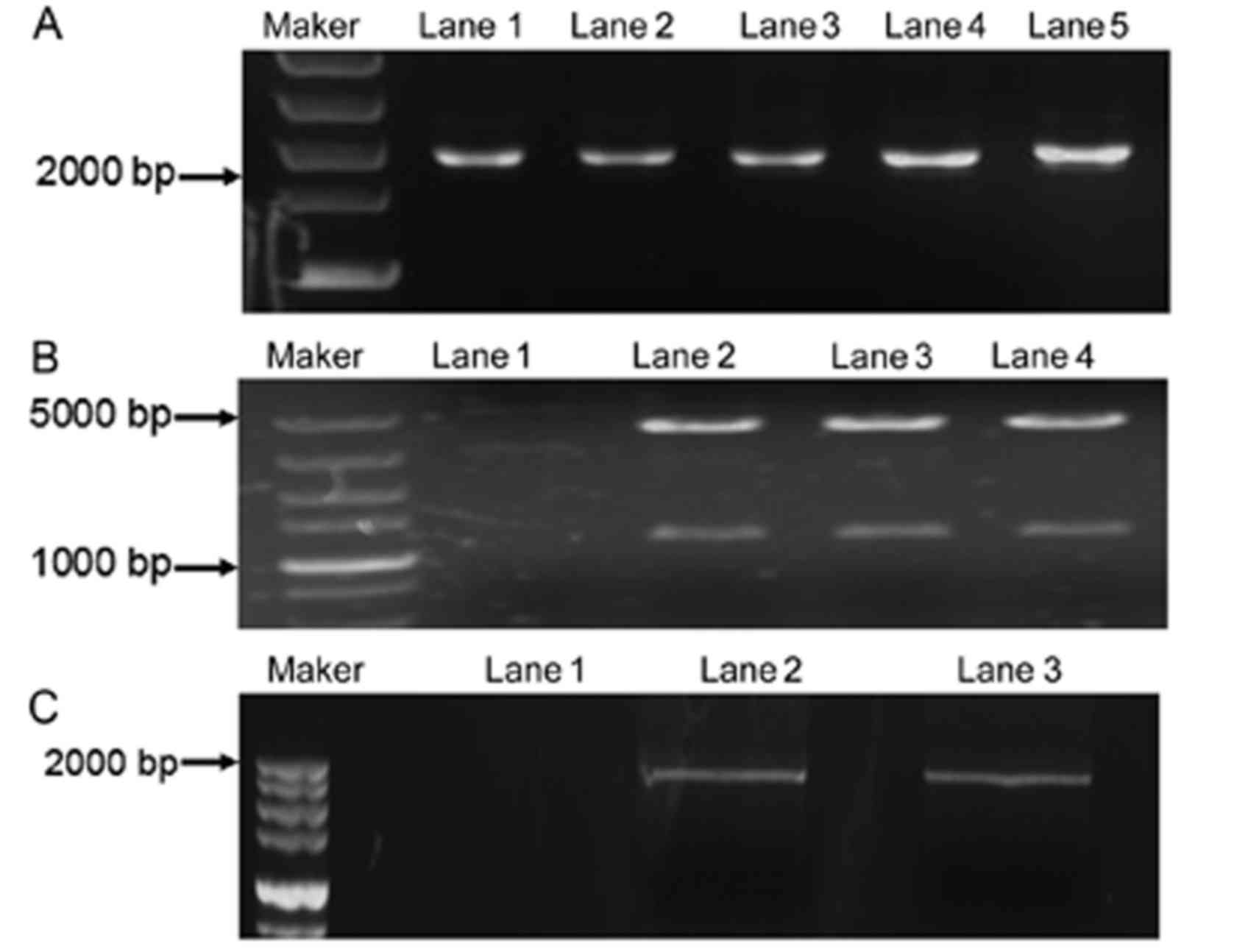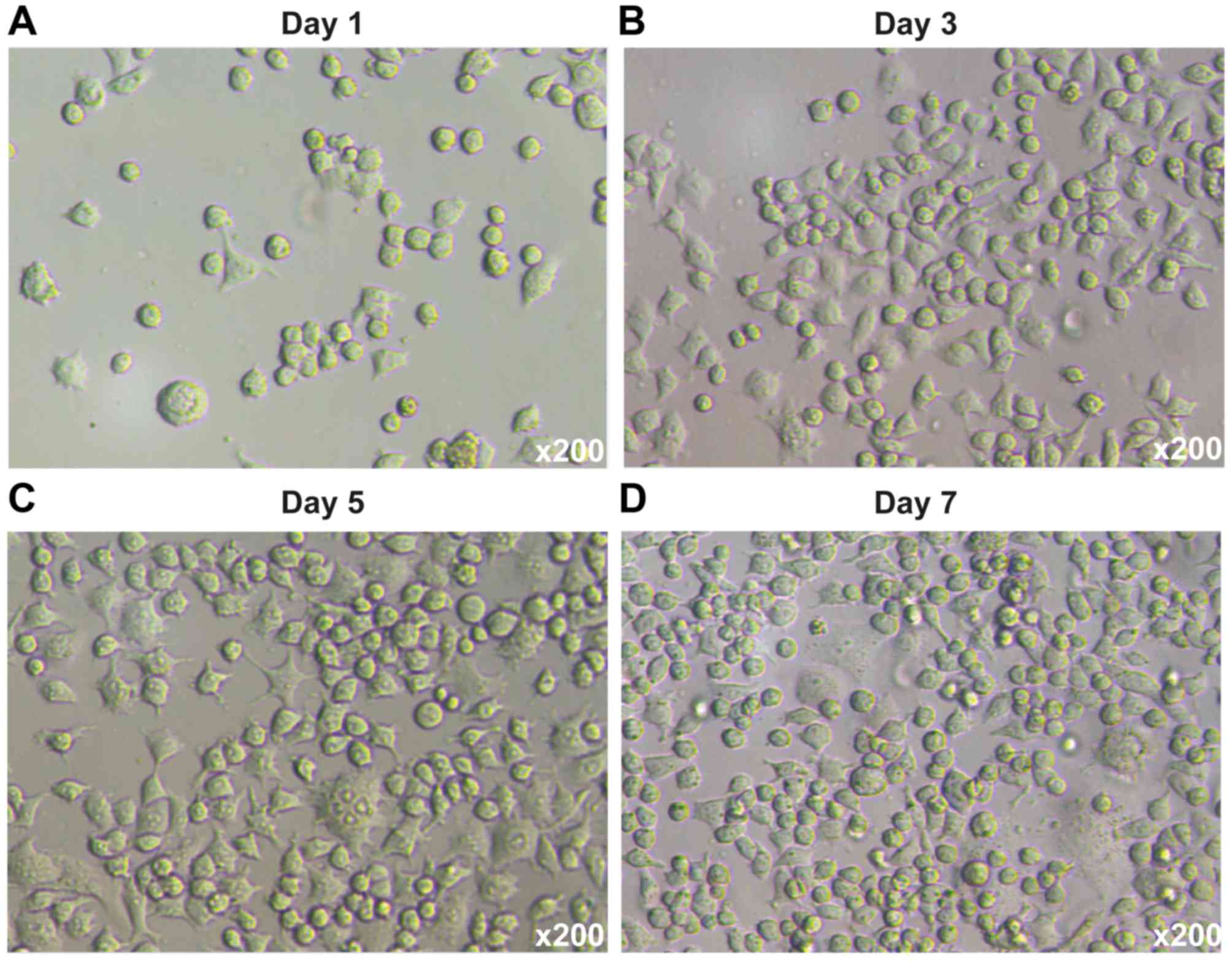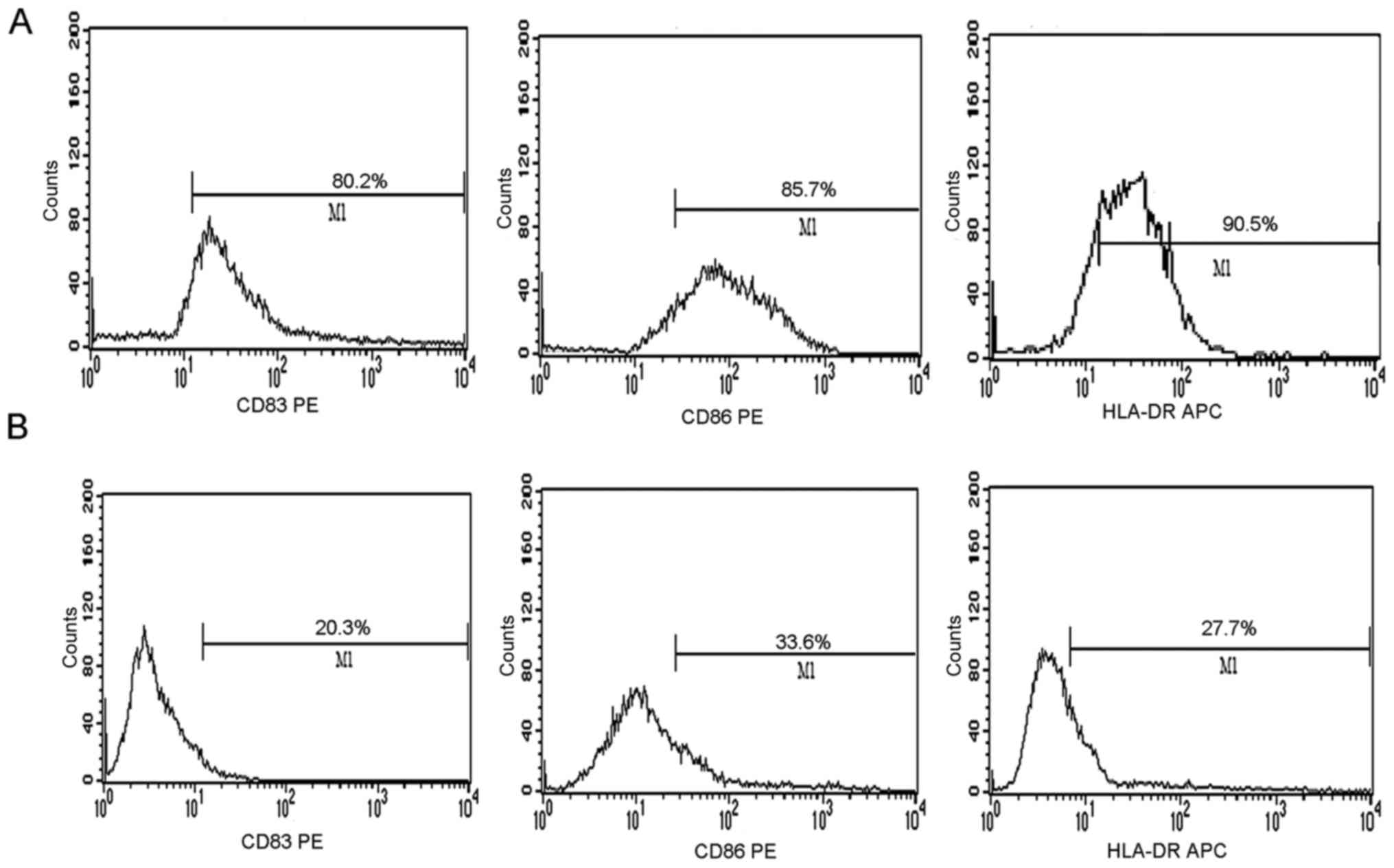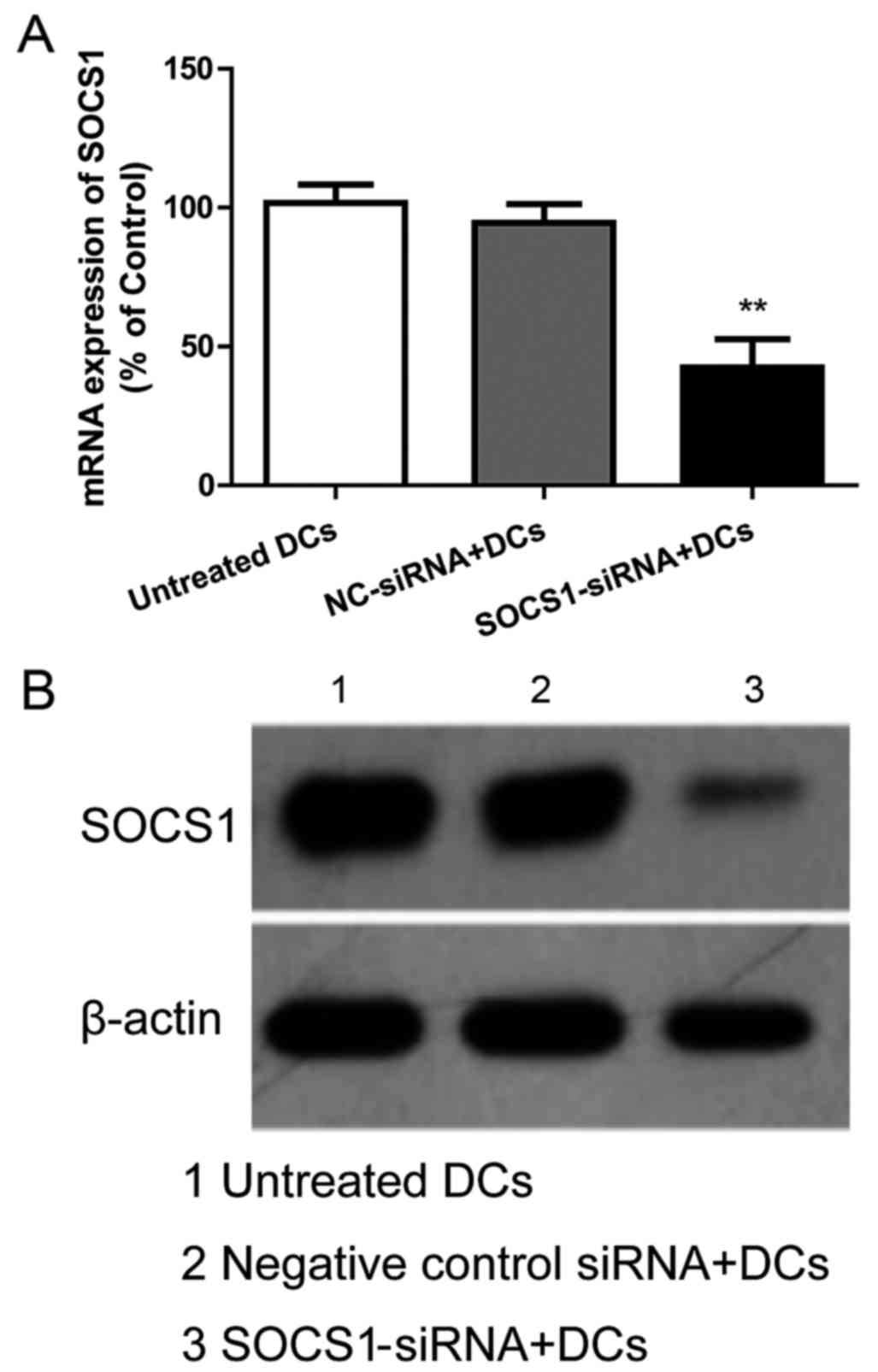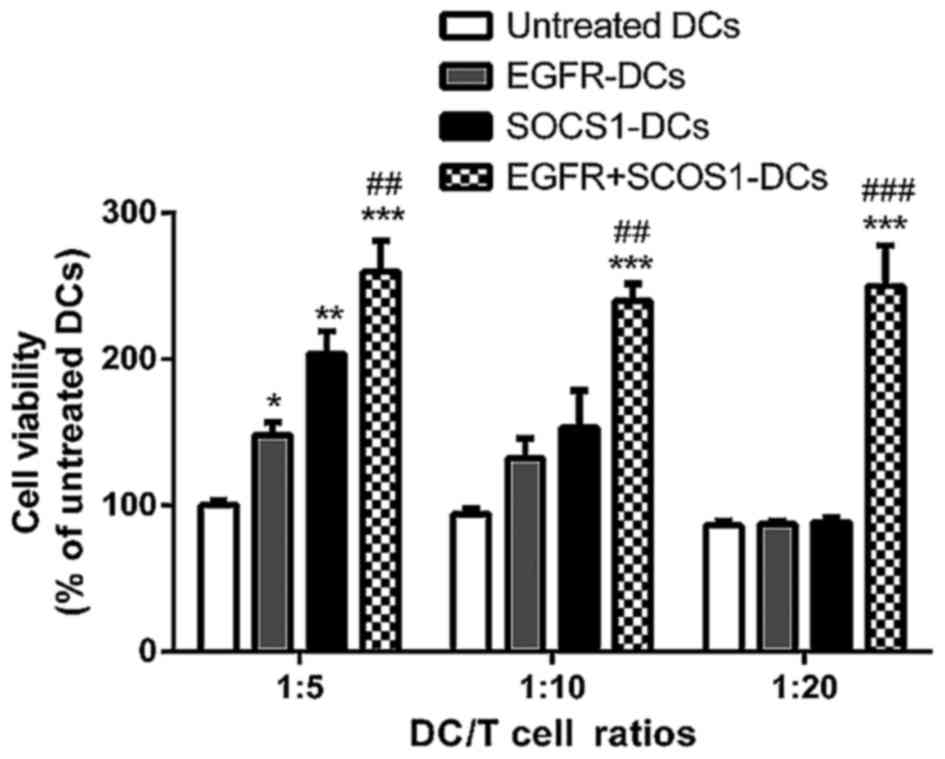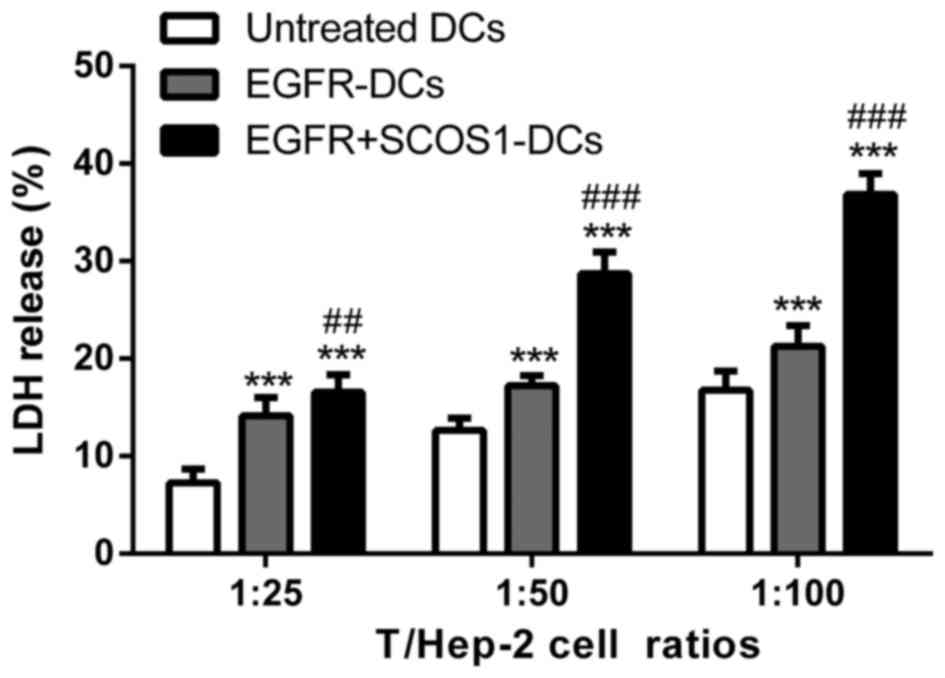|
1
|
Jemal A, Bray F, Center MM, Ferlay J, Ward
E and Forman D: Global cancer statistics. CA Cancer J Clin.
61:69–90. 2011. View Article : Google Scholar : PubMed/NCBI
|
|
2
|
Mao L, Hong WK and Papadimitrakopoulou VA:
Focus on head and neck cancer. Cancer Cell. 5:311–316. 2004.
View Article : Google Scholar : PubMed/NCBI
|
|
3
|
Yarden Y: The EGFR family and its ligands
in human cancer. signalling mechanisms and therapeutic
opportunities. Eur J Cancer. 37 Suppl 4:S3–S8. 2001. View Article : Google Scholar : PubMed/NCBI
|
|
4
|
Salomon DS, Brandt R, Ciardiello F and
Normanno N: Epidermal growth factor-related peptides and their
receptors in human malignancies. Crit Rev Oncol Hematol.
19:183–232. 1995. View Article : Google Scholar : PubMed/NCBI
|
|
5
|
Woodburn JR: The epidermal growth factor
receptor and its inhibition in cancer therapy. Pharmacol Ther.
82:241–250. 1999. View Article : Google Scholar : PubMed/NCBI
|
|
6
|
Wiley HS: Trafficking of the ErbB
receptors and its influence on signaling. Exp Cell Res. 284:78–88.
2003. View Article : Google Scholar : PubMed/NCBI
|
|
7
|
Nicholson RI, Gee JM and Harper ME: EGFR
and cancer prognosis. Eur J Cancer. 37 Suppl 4:S9–S15. 2001.
View Article : Google Scholar : PubMed/NCBI
|
|
8
|
Herbst RS: Targeted therapy in
non-small-cell lung cancer. Oncology. 16 Suppl 9:19–24.
2002.PubMed/NCBI
|
|
9
|
Galanis E, Buckner J, Kimmel D, Jenkins R,
Alderete B, O'Fallon J, Wang CH, Scheithauer BW and James CD: Gene
amplification as a prognostic factor in primary and secondary
high-grade malignant gliomas. Int J Oncol. 13:717–724.
1998.PubMed/NCBI
|
|
10
|
Kabolizadeh P, Kubicek GJ, Heron DE,
Ferris RL and Gibson MK: The role of cetuximab in the management of
head and neck cancers. Expert Opin Biol Ther. 12:517–528. 2012.
View Article : Google Scholar : PubMed/NCBI
|
|
11
|
Celluzzi CM, Mayordomo JI, Storkus WJ,
Lotze MT and Falo LD Jr: Peptide-pulsed dendritic cells induce
antigen-specific CTL-mediated protective tumor immunity. J Exp Med.
183:283–287. 1996. View Article : Google Scholar : PubMed/NCBI
|
|
12
|
Mayordomo JI, Zorina T, Storkus WJ,
Zitvogel L, Celluzzi C, Falo LD, Melief CJ, Ildstad ST, Kast WM,
Deleo AB, et al: Bone marrow-derived dendritic cells pulsed with
synthetic tumour peptides elicit protective and therapeutic
antitumour immunity. Nat Med. 1:1297–1302. 1995. View Article : Google Scholar : PubMed/NCBI
|
|
13
|
Fong L, Brockstedt D, Benike C, Breen JK,
Strang G, Ruegg CL and Engleman EG: Dendritic cell-based
xenoantigen vaccination for prostate cancer immunotherapy. J
Immunol. 167:7150–7156. 2001. View Article : Google Scholar : PubMed/NCBI
|
|
14
|
Kubo M, Hanada T and Yoshimura A:
Suppressors of cytokine signaling and immunity. Nat Immunol.
4:1169–1176. 2003. View
Article : Google Scholar : PubMed/NCBI
|
|
15
|
Hanada T, Yoshida H, Kato S, Tanaka K,
Masutani K, Tsukada J, Nomura Y, Mimata H, Kubo M and Yoshimura A:
Suppressor of cytokine signaling-1 is essential for suppressing
dendritic cell activation and systemic autoimmunity. Immunity.
19:437–450. 2003. View Article : Google Scholar : PubMed/NCBI
|
|
16
|
Hanada T, Tanaka K, Matsumura Y, Yamauchi
M, Nishinakamura H, Aburatani H, Mashima R, Kubo M, Kobayashi T and
Yoshimura A: Induction of hyper Th1 cell-type immune responses by
dendritic cells lacking the suppressor of cytokine signaling-1
gene. J Immunol. 174:4325–4332. 2005. View Article : Google Scholar : PubMed/NCBI
|
|
17
|
Shi D, Li D, Yin Q, Qiu Y, Yan H, Shen Y,
Lu G and Liu W: Silenced suppressor of cytokine signaling 1 (SOCS1)
enhances the maturation and antifungal immunity of dendritic cells
in response to Candida albicans in vitro. Immunol Res. 61:206–218.
2015. View Article : Google Scholar : PubMed/NCBI
|
|
18
|
Lutz MB, Kukutsch N, Ogilvie AL, Rössner
S, Koch F, Romani N and Schuler G: An advanced culture method for
generating large quantities of highly pure dendritic cells from
mouse bone marrow. J Immunol Methods. 223:77–92. 1999. View Article : Google Scholar : PubMed/NCBI
|
|
19
|
Reiter JL, Threadgill DW, Eley GD, Strunk
KE, Danielsen AJ, Sinclair CS, Pearsall RS, Green PJ, Yee D,
Lampland AL, et al: Comparative genomic sequence analysis and
isolation of human and mouse alternative EGFR transcripts encoding
truncated receptor isoforms. Genomics. 71:1–20. 2001. View Article : Google Scholar : PubMed/NCBI
|
|
20
|
Gabrilovich DI, Nadaf S, Corak J,
Berzofsky JA and Carbone DP: Dendritic cells in antitumor immune
responses. II. Dendritic cells grown from bone marrow precursors,
but not mature DC from tumor-bearing mice, are effective antigen
carriers in the therapy of established tumors. Cell Immunol.
170:111–119. 1996. View Article : Google Scholar : PubMed/NCBI
|
|
21
|
Sharma P and Allison JP: The future of
immune checkpoint therapy. Science. 348:56–61. 2015. View Article : Google Scholar : PubMed/NCBI
|
|
22
|
Herbst RS and Shin DM: Monoclonal
antibodies to target epidermal growth factor receptor-positive
tumors: A new paradigm for cancer therapy. Cancer. 94:1593–1611.
2002. View Article : Google Scholar : PubMed/NCBI
|
|
23
|
Sharafinski ME, Ferris RL, Ferrone S and
Grandis JR: Epidermal growth factor receptor targeted therapy of
squamous cell carcinoma of the head and neck. Head Neck.
32:1412–1421. 2010. View Article : Google Scholar : PubMed/NCBI
|
|
24
|
Ferris RL, Jaffee EM and Ferrone S: Tumor
antigen-targeted, monoclonal antibody-based immunotherapy: Clinical
response, cellular immunity, and immunoescape. J Clin Oncol.
28:4390–4399. 2010. View Article : Google Scholar : PubMed/NCBI
|
|
25
|
Bonner JA, Harari PM, Giralt J, Azarnia N,
Shin DM, Cohen RB, Jones CU, Sur R, Raben D, Jassem J, et al:
Radiotherapy plus cetuximab for squamous-cell carcinoma of the head
and neck. N Engl J Med. 354:567–578. 2006. View Article : Google Scholar : PubMed/NCBI
|
|
26
|
Palucka K and Banchereau J: Cancer
immunotherapy via dendritic cells. Nat Rev Cancer. 12:265–277.
2012. View
Article : Google Scholar : PubMed/NCBI
|
|
27
|
Paczesny S, Banchereau J, Wittkowski KM,
Saracino G, Fay J and Palucka AK: Expansion of melanoma-specific
cytolytic CD8+ T cell precursors in patients with
metastatic melanoma vaccinated with CD34+
progenitor-derived dendritic cells. J Exp Med. 199:1503–1511. 2004.
View Article : Google Scholar : PubMed/NCBI
|
|
28
|
Welters MJ, Kenter GG, de Vos van
Steenwijk PJ, Löwik MJ, Berends-van der Meer DM, Essahsah F,
Stynenbosch LF, Vloon AP, Ramwadhdoebe TH, Piersma SJ, et al:
Success or failure of vaccination for HPV16-positive vulvar lesions
correlates with kinetics and phenotype of induced T-cell responses.
Proc Natl Acad Sci USA. 107:pp. 11895–11899. 2010; View Article : Google Scholar : PubMed/NCBI
|
|
29
|
Yang BB, Jiang H, Chen J, Zhang X, Ye JJ
and Cao J: Dendritic cells pulsed with GST-EGFR fusion protein:
Effect in antitumor immunity against head and neck squamous cell
carcinoma. Head Neck. 32:626–635. 2010.PubMed/NCBI
|
|
30
|
Melief CJ: Tumor eradication by adoptive
transfer of cytotoxic T lymphocytes. Adv Cancer Res. 58:143–175.
1992. View Article : Google Scholar : PubMed/NCBI
|
|
31
|
Knutson KL and Disis ML: Tumor
antigen-specific T helper cells in cancer immunity and
immunotherapy. Cancer Immunol Immunother. 54:721–728. 2005.
View Article : Google Scholar : PubMed/NCBI
|
|
32
|
Bennett SR, Carbone FR, Karamalis F,
Miller JF and Heath WR: Induction of a CD8+ cytotoxic T
lymphocyte response by cross-priming requires cognate
CD4+ T cell help. J Exp Med. 186:65–70. 1997. View Article : Google Scholar : PubMed/NCBI
|
|
33
|
Schoenberger SP, Toes RE, van der Voort
EI, Offringa R and Melief CJ: T-cell help for cytotoxic T
lymphocytes is mediated by CD40-CD40L interactions. Nature.
393:480–483. 1998. View
Article : Google Scholar : PubMed/NCBI
|
|
34
|
Gao FG, Khammanivong V, Liu WJ, Leggatt
GR, Frazer IH and Fernando GJ: Antigen-specific CD4+
T-cell help is required to activate a memory CD8+ T cell
to a fully functional tumor killer cell. Cancer Res. 62:6438–6441.
2002.PubMed/NCBI
|
|
35
|
Kobayashi T and Yoshimura A: Keeping DCs
awake by putting SOCS1 to sleep. Trends Immunol. 26:177–179. 2005.
View Article : Google Scholar : PubMed/NCBI
|
|
36
|
Hu Q, Qin X, Qian G, Jiang S, Li H, Jiang
M, Li X, Chen SY and Zang YQ: SOCS1 silencing can break high-dose
dendritic cell immunotherapy-induced immune tolerance. Mol Med Rep.
1:61–70. 2008.PubMed/NCBI
|
|
37
|
Wurtz O, Bajénoff M and Guerder S:
IL-4-mediated inhibition of IFN-gamma production by CD4+
T cells proceeds by several developmentally regulated mechanisms.
Int Immunol. 16:501–508. 2004. View Article : Google Scholar : PubMed/NCBI
|















